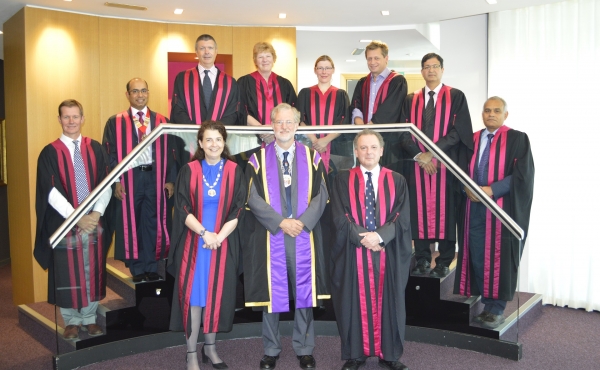FPM Board election 2024 results
Thank you to everyone who took the time to vote during the 2024 FPM Board Elections. We received three applications for two vacancies to the Board and the results have been confirmed and independently verified.
We are pleased to announce that Dr Manohar Sharma has been re-elected to the Board for a second four year term and that Dr Vivek Mehta has been elected for his first six year term. They will commence their terms at the Board meeting on 7 March 2025. We hope you will join us in congratulating Dr Sharma and Dr Mehta, we look forward to working with them. Both candidates' election statements can be found below.
The full results of the election can be accessed via this link
We would like to thank all candidates for their support of the Faculty.
(seeking a second term)
The Walton Centre NHS Foundation Trust, Liverpool
nominated by Dr John Wiles and Dr Sanjeeva Gupta
Q1: What experience do you have in local, regional and national committees, projects and initiatives?
I have been in a Consultant Post since 2004 and full-time in Pain Medicine since 2011. I have a clinical profile within the MDT setup delivering complex cancer, pelvic, facial, and spinal pain. My skills include pain neuromodulation implants, neuroablation including cordotomy, spinal neurolysis, trigeminal ganglion interventions, and spinal radiofrequency techniques combined with general pain management principles.
I have been an FFPMRCA Examiner, FPM Educational meetings adviser (over 6 years), and The British Pain Society Interventional Pain SIG Chair to promote collaboration and pain education relevant to day-to-day practice. I have led several pain educational events for FPM and in Liverpool including the Annual Chronic Pain Course and EFIC Cancer Pain School over the last 15 years.
I co-founded the North England Pain Medicine Group in 2009 to support pain education, regional networking, and promoting areas of good clinical practice and this group is still active.
I co-steered NIHR NERVE’S multicentre RCT comparing discectomy with transforaminal epidural steroid injections for acute sciatica published in Lancet Rheumatology in 2021 demonstrating epidural steroid injections to reduce the need for surgery and treatment cost.
While being co-opted to the Professional Standards Committee, I have shown initiative to be Vice-Chair and was recently appointed PSC Chair. I am an FPM Board member and contributed as a Clinical Editor for FPM Transmitter from 2019 to 2023.
Q2: What would you aim to do if elected to the Board?
I am confident that I will be able to lead and support FPM initiatives including the third edition of FPM Core Standards for Pain Management Services, ACSA for Pain, and Pain Credentials, and constructive views on various consultations sent to FPM as these impact Pain Medicine Standards and influence our clinical practice and thus are relevant to FPM members and the future of our subspecialty.
Dr Vivek Mehta
St Bartholomew's Hospital, London
nominated by Dr Ganesan Baranidharan and Dr Sarah Love-Jones
Q1: What experience do you have in local, regional and national committees, projects and initiatives?
I am a Consultant in Pain Medicine and Neuromodulation and Director of Pain Research at St Bartholomew's Hospital, London. If elected to serve the FPM Board I would bring a strong academic and educational portfolio with more than 25 years clinical experience in Pain Medicine.
I have been appointed as the Chair of Royal Court of Examiners for Fellowship of Faculty of Pain Medicine and serve on the board of National Neuromodulation Society of UK and Ireland as elected honorary Treasurer. I am the Co- Director for the University PG Certificate Program and EEPIN in Neuromodulation, the only university-based accreditation in the field of neuromodulation.
Q2: What would you aim to do if elected to the Board?
- Quality standards in pain management necessitate that pain services should be staffed by appropriately trained individuals who work within multidisciplinary teams and that interventional procedures should not be performed in isolation, but as part of a holistic package of care. This would need succession planning and identifying the workforce for future.
- Credentialing in pain will create an opportunity making it a truly multidimensional specialty and to have allied specialties taking the FFPM exam for accreditation. With my role as the Chair of FFPM Exam, I would ensure that the exam matches the proposed structural changes.
- Global reach of FFPM Exam: The success of online delivery in pandemic has given an opportunity to expand the exam globally, and it would be worth piloting the FFPM exam in overseas market with strong pain academia.
- Ensuring the equality and diversity with appropriate gender representation in pain medicine in UK.



